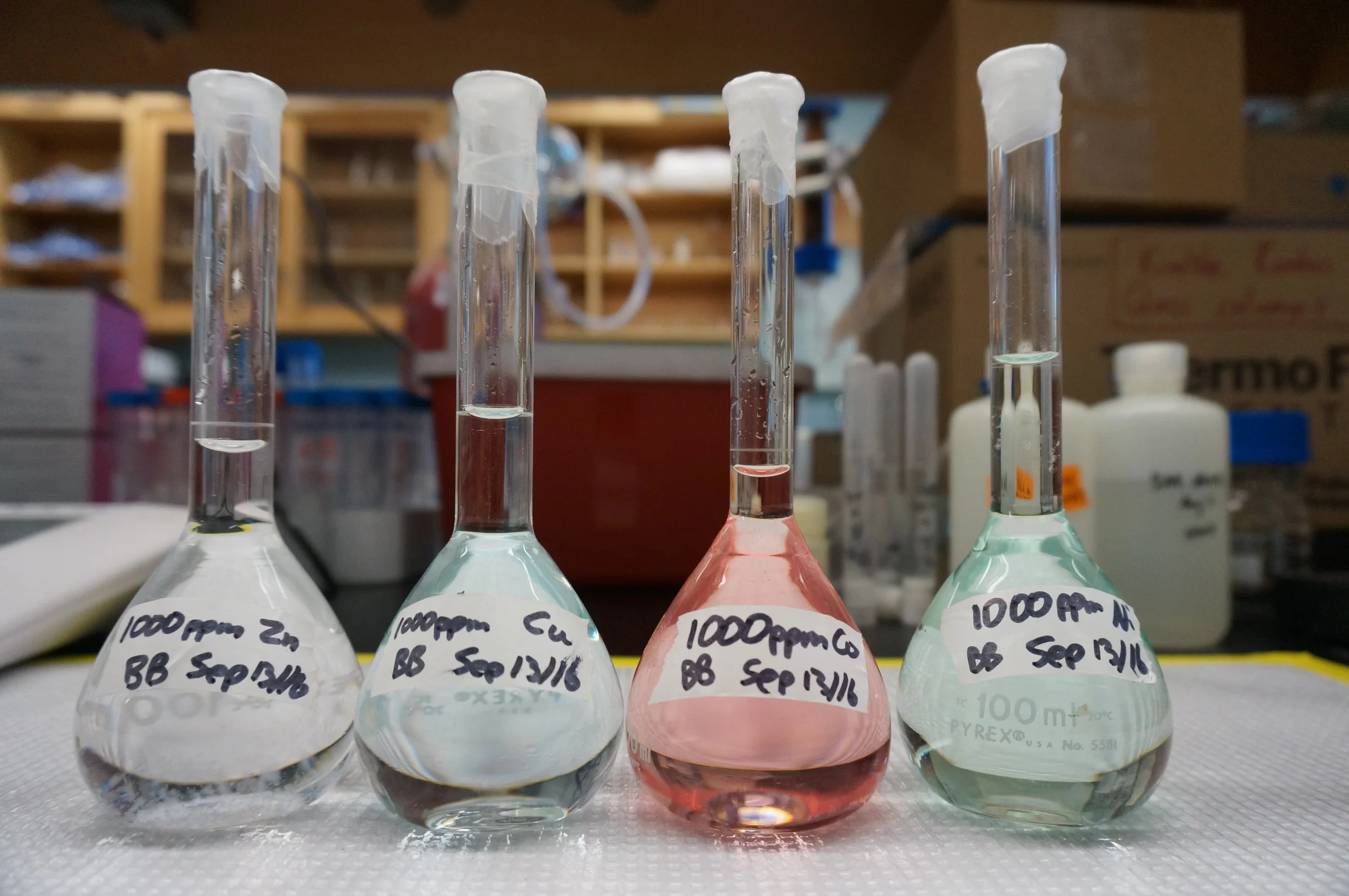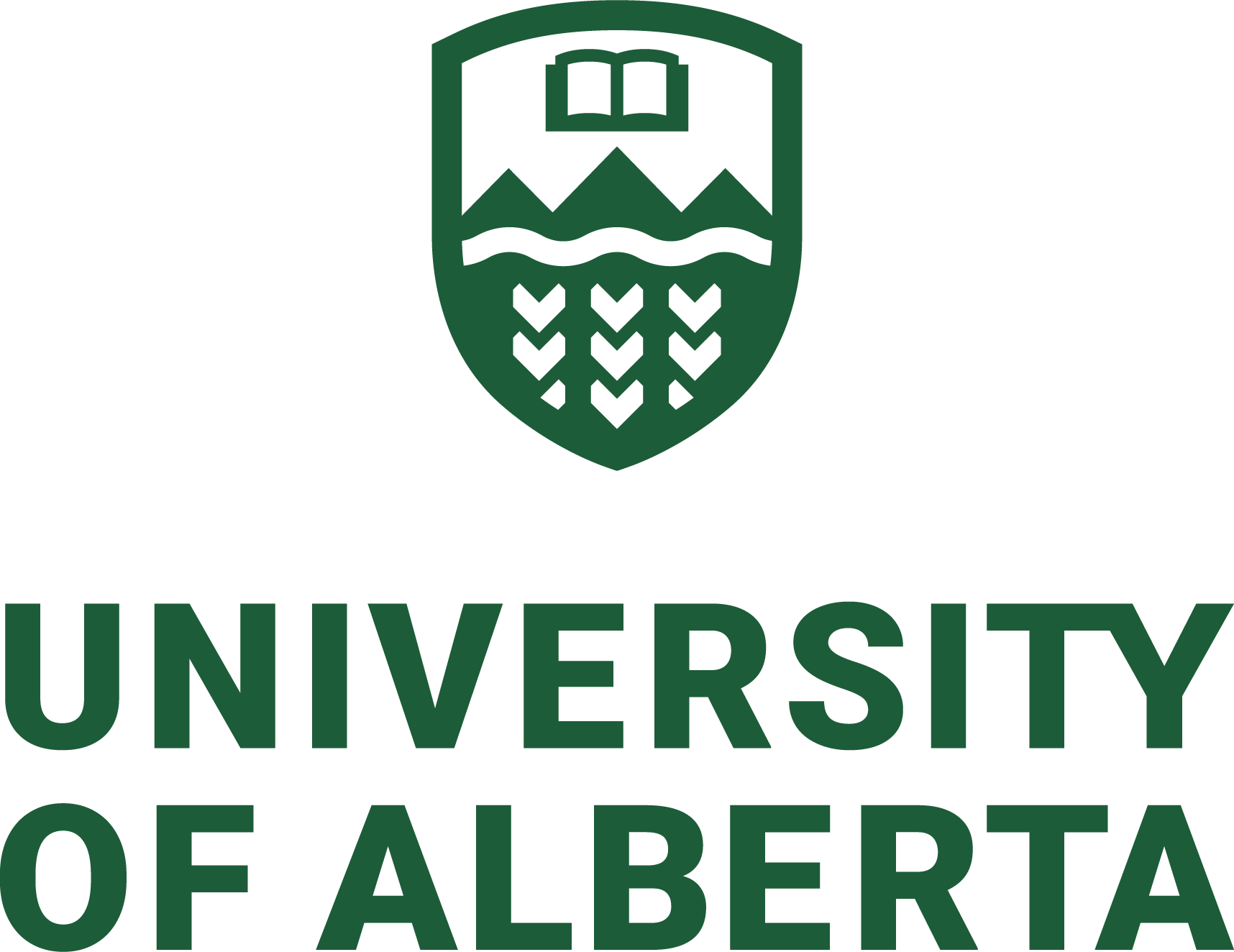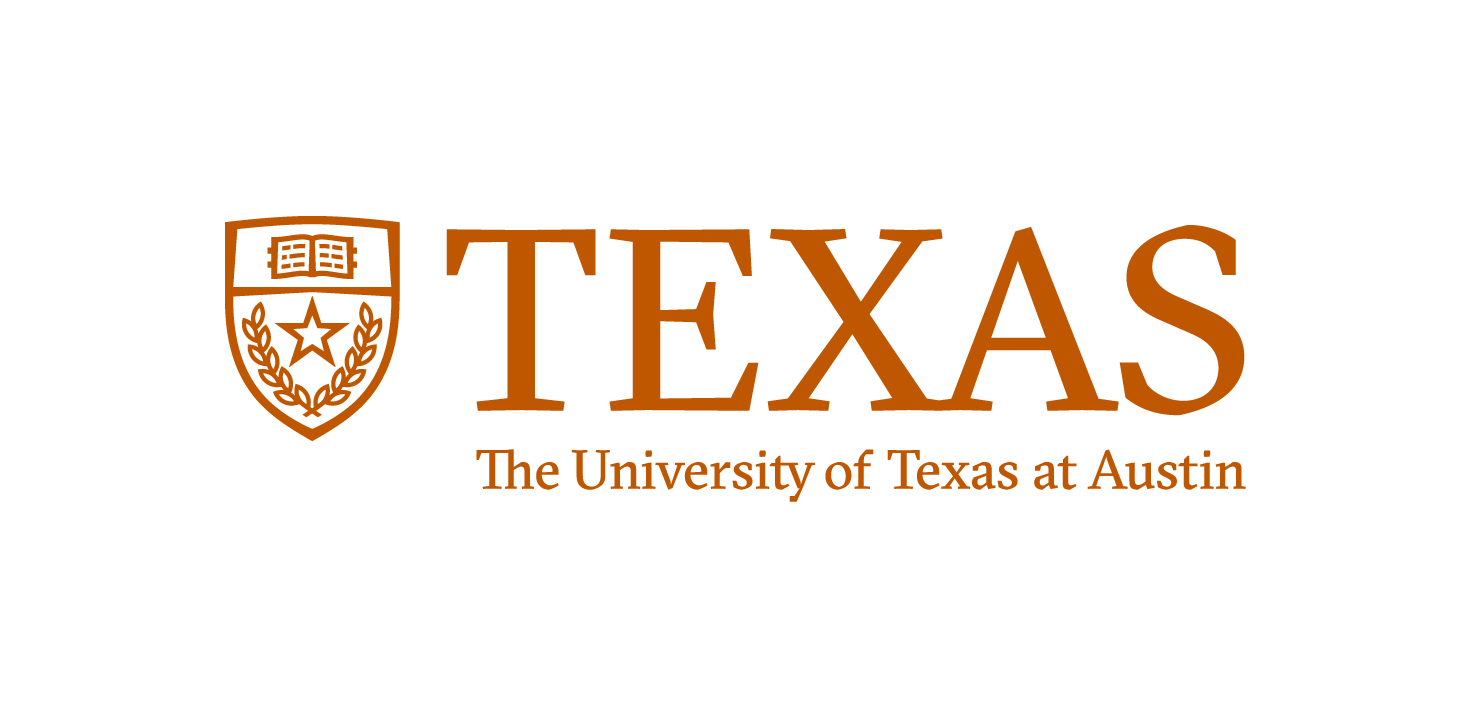Dr. Daniel S. Alessi
Professor And Getty Centennial Chair in Geological Sciences
Professor and Encana Chair in Water Resources (on Leave)
My research group is moving from Edmonton, AB to Austin, TX; during this transition, I can be reached at both email addresses below. My research interests lie in the chemistry of environmental surfaces, the study of unconventional resources including critical minerals extraction, and the transport, fate and environmental remediation of metals and organics contamination. Along with conducting research and mentoring the undergraduate and graduate students of my lab, I taught courses at the University of Alberta including Planet Earth, Environment Alberta, Environmental Geochemistry, and Contaminant Hydrogeology, teach Field Methods in Groundwater Hydrology and Aqueous Geochemistry at the University of Texas at Austin, and serve as an associate editor for Environmental Science & Technology. I was elected to the College of New Scholars, Artists and Scientists of the Royal Society of Canada in 2022, and named a Fellow of the Royal Society of Chemistry in 2023.
Emails: alessi@ualberta.ca, alessi@utexas.edu
Dr. BRian Smerdon
Research Associate And Adjunct Professor
I am interested in discovering and sharing the story of groundwater: where it originated, how long its journey has been, and its experience along the flow path. I help develop and lead collaborative research initiatives that embrace field-based and modelling approaches to conceptualize groundwater circulation and its interaction with surface water. I enjoy working with colleagues to advance hydrological knowledge through a blend of isotopic, geochemical, numerical modelling, and physical hydrogeology techniques. Prior to joining the Alessi Lab in 2021, I was a senior scientist with the Alberta Geological Survey in Canada and the Commonwealth Scientific and Industrial Organisation (CSIRO) in Australia.
Email: brian.smerdon@ualberta.ca
Dr. Aneeshma Peter
Postdoctoral Researcher
I am a material chemist, who loves to explore the environmental applications of carbonaceous materials from pyrolysis. I am hopeful to implement my experience and expertise in material characterization, biomass pyrolysis, metal adsorption and chemical modifications here in Dr. Alessi’s laboratory, to successfully modify carbon black, a by-product from methane pyrolysis. The modified carbon can be potentially used in various environmental applications such as wastewater treatment, soil amendment and carbon dioxide sequestration.
Email: aneeshma@ualberta.ca
Dr. Brendan Bishop
Postdoctoral Researcher
I am primarily interested in better understanding new sources of critical minerals from sedimentary basins. Currently, I am developing a mineral systems approach for basinal brine hosted lithium focusing on the Duperow Formation of the Williston Basin and Smackover Formation of the Gulf of Mexico Basin using a combination of field, geochemical, isotopic, and machine learning methods in collaboration with the USGS and GSC. I am also interested in recovering rare earth elements from coal fly ash, policy related to critical mineral recovery, and surface reactivity of environmental media including bacteria, biochar, and clay minerals. I recently completed my PhD at the University of Regina and received my BSc and MSc degrees in Earth and Atmospheric Sciences from the University of Alberta where I was a member of the Geobiology/Environmental Geochemistry group.
Email: Brendan.bishop@jsg.utexas.edu
Dr. Logan Swaren
Postdoctoral Researcher
My postdoctoral research focuses on two interdisciplinary projects aimed at advancing sustainable resource development. In the first project, funded by Future Energy Systems (FES), I am evaluating unconventional sources of critical minerals, such as geothermal brines and mine waste streams, to support the clean energy supply chain. Second, supported by Net Zero Atlantic, I am modelling subsurface geochemical reactions to assist with the de-risking of Carbon Capture and Storage (CCS) offshore Nova Scotia.
Email: lswaren@ualberta.ca
Dwi Candra Pratiwi
PhD Candidate
Bioremediation processes focused on understanding how organisms react to the presence of particular-contaminants is my critical concern. At present, I am working on Colloidal Biochar Nanoparticles (BCNPs) and Cadmium (Cd) as potential contaminant sources to Bacillus subtilis, observing the cell viability, reproduction, and metabolism rates during exposure, in addition to morphological analysis using SEM to determine cell performance and characteristics. Afterward I will couple these results to physiological responses through oxidative stress analysis (Lipid and ROS) for stress response examination.
Email: pratiwi@ualberta.ca
Lingyi Tang
PhD Candidate
I am interested in the surface reactivity of pyrogenic carbon colloids and their mobility. Surface complexation models (SCMs) are powerful tools to investigate the changes in surface functional groups of pyrogenic carbon colloids. I am developing a new program PhreeFit to efficiently estimate the parameters for SCMs. I also integrate machine learning models and density functional theory to predict the mobility and the ability of pyrogenic carbon colloids to carry trace metals under various conditions. Currently, pH, ionic strength, trace metals, and UV radiation are factors that I am concerned about.
Email: ltang6@ualberta.ca
Marlin Schmidt
PhD Candidate
I'm a PhD student investigating methods of extracting lithium from sediments. Lithium demand for use in electric vehicle batteries is rapidly increasing, and developing new ways to extract lithium from unconventional sources is key to meeting that demand. I am a professional geoscientist with thirteen years of work experience in both the private and public sectors. My work focused on the assessment and remediation of contaminated sites, mostly in the conventional oil and gas sector. I have a bachelor’s degree in chemistry and a master’s degree in applied environmental geoscience. I’m also currently an elected official in Alberta, serving the people of Edmonton - Gold Bar since 2015.
Email: marlin1@ualberta.ca
Fangshuai Wu
PhD Student
My research interest is lithium extraction from oilfield or geothermal brines. Currently, I am studying ion exchange methods for lithium extraction. A primary challenge is metal oxide sorbent loss during the lithium desorption process. My research will look into dopants that can improve the chemical stability of sorbents, thereby increasing their life. The modified sorbents will be applied to brines including geothermal fluids from a project in British Columbia.
Email: fw4539@my.utexas.edu
Arash Ghaderi
Masters Student
The fields of environmental geochemistry, environmental pollution and industrial wastewater treatment are my research interests. In particular, I am interested in studying the effects of various factors such as solution pH and ionic strength on the behavior of heavy metals as river freshwater meets seawater in estuaries. At present, I am studying methods of methane pyrolysis, focusing on thermal decomposition of methane which leads to the production of huge amounts of carbon byproducts. I will characterize the carbon, and modify and functionalize it for use in water treatment applications.
Email: aghaderi@ualberta.ca
Emma Braun
Masters Student
Email: ebraun@ualberta.ca
Jenna MAccagno
Masters Student
Email: jmaccagn@ualberta.ca
Erika Castro
Masters Student
I am pursuing a MSc in Earth and Atmospheric Sciences at UofA, under the supervision of Dr. Daniel Alessi. My research focuses on developing carbon-biochar composites through co-pyrolysis of carbon black obtained from the methane pyrolysis process and woody biomass. As part of my study, I use accelerated ageing methods to simulate long-term environmental conditions and assess how these materials behave and perform over long periods. This includes comparing the stability and reactivity of biochar alone, carbon black, and their co-pyrolyzed composites, in order to evaluate their potential use as soil amendments and carbon sequestration in Alberta and beyond.
Email: eacastro@ualberta.ca
Sascha Dorian
Masters Student
I am a geologist, having worked both in the environmental consulting and mineral exploration industries. My research interests revolve around the fate, transport and remediation of various contaminants in soil and groundwater. Currently, my research is focused on amending low-quality soils with a biochar-carbon black composite, to determine if it improves soil structure and potentially plant growth.
Email: aadorian@ualberta.ca
Gabriel liu
Masters Student
Geosciences MSc student at UT Austin with a research focus on critical mineral extraction. Currently investigating the feasibility of genetically engineering cell-surface peptide expression to selectively remove lithium from brines. Completed an Honors BSc in Biochemistry from the University of Alberta in 2025 with a certificate in Biomedical Research.
Email: gl24556@my.utexas.edu
Lab Alumni
Daniela LondoñO
Daniela completed her MSc degree in January 2026. She investigated the removal of vanadium from aqueous solution using engineered composites of biochar and magnetite nanoparticles.
Hadi Motevassel
Hadi finished his MSc degree in January 2026, having studied the acid generation potential of tailings solvent recovery unit (TSRU) tailings from the Athabasca oil sands mines of northern Alberta. He is employed by Stantec Consulting Ltd. as a geotechnical engineering technologist in Calgary, Alberta.
Kayode Famade
Kayode completed his MSc degree in December 2025. His research focused on the surface reactivity and chemistry of nanoparticles derived from biochar in water.
Mayra Muñoz
Mayra completed her MSc degree in September 2025 on the surface characterization of photoaged plastics in various environmental conditions, including seawater, ultrapure water, air, and freshwater, to understand chemical and physical transformations these polymers undergo during exposure to UVA radiation. She joined Stantec Consulting Ltd. in Edmonton, Alberta as a geological engineering technologist after finishing her degree.
Dr. Katherine Snihur
Katherine was a longstanding member of the Alessi group, completing her BSc Honours (2017), MSc (2021) and PhD (2025) theses in geochemistry. Her doctoral studies focused on the physicochemical properties and surface chemistry of natural pyrogenic carbon formed in wildfires. After her PhD, she joined the environmental consulting firm Worley Consulting in Edmonton, Alberta.
Dr. Yuge BAi
Yuge was a postdoctoral researcher in the Alessi group from 2022-2025 who investigated the extent to which microbial cycling of biochar can facilitate electron transfer or the release of associated organic matter from the biochar or to soil pore water. After leaving the group, she took a position as an environmental chemist in the Potsdam Institute for Climate Impact Research.
Dr. Victoria Chevrot
Victoria finished her PhD in August 2025, co-supervised by Prof. Murray Gingras (University of Alberta) and Dr. Noga Vaisblat (Natural Resources Canada). She studied the Deadwood and Winnipeg Formations of southern Saskatchewan as targets for carbon dioxide storage and geothermal energy production.
Dr. Karthik Shivakumar
Karthik completed a PhD (January 2025) in the Alessi group and stayed on as a Future Energy Systems - Legacy Builders Program postdoctoral fellow until July 2025. He worked on developing methods and technologies to selectively extract lithium from sedimentary brines. After, he joined Mangrove Lithium in Vancouver, BC as an R&D engineer.
Carmen Ricard
Carmen completed her MSc in the Alessi group in March 2025, co-supervised by Dr. Nicholas Utting (Natural Resources Canada) and Sheila Luther (Montrose Environmental). She characterized sumps containing oil and gas drilling waste, determining the potential for contaminants migration.
Keifer Klimchuk
Keifer completed his MSc in the Alessi group in December 2024, working on the removal of a pharmaceutical, ciprofloxacin, from water using two biochars produced from sewage sludge as sorbents. After graduating, he took a position in geochemistry at Natural Resources Canada in Devon, Alberta.
Dr. ARvind Kumar
Arvind was a visiting PhD student in the Alessi lab from 2022-2024, who studied the conversion of food waste into low cost, value-added products such as biochar and biochar-based nanocomposites. He took a position as a postdoctoral researcher at Jain University in India after leaving the University of Alberta.
Bennett Braun
Bennett completed an MSc in the Alessi group in February 2024, investigating treatment methods to remove organic compounds from oilfield brines before they enter the ion exchange process for lithium extraction. After completing his studies, he joined SRK Consulting as a Staff Consultant (Geochemistry).
Daniels Kononovs
Daniels was an MSc student from 2021 to 2023, co-supervised by Dr. Christine Rivard (Geological Survey of Canada) and Dr. Dani Degenhardt (Northern Forestry Centre). He evaluated the impacts that seismic cutlines for hydrocarbon development near Fox Creek, Alberta have on forest vadose zone dynamics. After graduating with an MSc in September 2023, he continued to a full-time position at the Northern Forestry Centre.
Dr. Ashkan Zolfaghari
Ashkan was a postdoctoral researcher and then a research associate from 2018 to 2023. His research focused on the water cycle, environmental impacts, and cost analyses of the produced wastewater from hydraulic fracturing operations. After leaving the Alessi group, he joined Suncor in Calgary, Alberta as a Senior Technology Development Advisor.
Dr. Salman safari
Salman was a postdoctoral researcher from 2016 to 2021 who worked with industrial partners to develop technologies to extract lithium from petrobrines located in Alberta and in characterizing and reclaiming carbonaceous waste materials. He co-founded a startup lithium technology company, CANDLE Lithium, and serves as President and CTO.
Dr. KONSTANTIN VON GUNTEN
Konstantin completed his PhD (June 2019) in the Alessi group, and stayed on as a postdoctoral fellow through February 2021. He investigated the mobility and environmental impact of heavy metals at a uranium mine in northern Saskatchewan, as well as the hydrogeochemistry of the North Saskatchewan River in Alberta. After leaving the University of Alberta, he took an environmental consulting position at TFB AG in Switzerland.
Dr. Lei Gao
Lei was a postdoctoral researcher from 2019 to 2020, who investigated the surface reactivity and mineral phase transformations between iron reducing bacteria and arsenic-doped ferrihydrite. After leaving the Alessi group, she joined the Nanjing Normal University as a scientist.
Dr. Cheng Zhong
Cheng was an MSc (September 2017) and PhD (November 2020) student in the Alessi group. His research investigated the microbiology of hydraulic fracturing flowback and produced water, including impacts to soil and water in the case of fluid surface spills. After graduating, he began a postdoctoral fellowship in the laboratory of Prof. Pei-Yuan Qian at the Hong Kong University of Science and Technology.
Adam Seip
Adam completed his MSc in July 2020 in the Alessi group. His research focused on developing methods to selectively extract lithium from oilfield brines and hydraulic fracturing flowback and produced water. He took a research and development position at E-One Moli Energy Corp. in Maple Ridge, British Columbia.
Neil Macpherson
Neil completed his BSc thesis and MSc (June 2020) in the Alessi group, and studied the thermodynamics of sulfate and chloride green rust dissolution in freshwater and saline water. He is employed as an Environmental Scientist at Roy Northern Land & Environmental in Fort St. John, British Columbia.
Dr. SEAN FUNK
Sean was a PhD student in the Alessi group from September 2014 to June 2019. His research focused on laboratory-based experiments and contaminant modeling to determine the sorption and transport behavior of novel contaminants found in flowback and produced waters from hydraulic fracturing operations in Alberta. Following graduation, he joined Advisian in Edmonton, Alberta as a hydrogeologist.
Dr. Zhengtao Shen
Zhengtao was a Killam Postdoctoral Fellow who investigated interactions between metals and the surfaces of biochar and sediments. Following the completion of his fellowship, he joined the School of Environment at Tsinghua University in Beijing and is currently an associate professor at Nanjing University.
Isabel Plata
Isabel was a MSc student in the Alessi group from January 2017 to December 2018. She analyzed the effects of aeration-oxidation as a pre-treatment mechanism for flowback and produced water (FPW) generated from hydraulic fracturing in Alberta, Canada to aid in the reuse and recycling of FPW. Currently she is pursuing a PhD in geochemistry in the group of Dr. Bernhard Mayer at the University of Calgary.
David Chunn
David was a research assistant and then a MSc student in the Alessi group from December 2015 to September 2018. He built a high-level, comprehensive hydrogeological model of the Fox Creek area in Alberta to understand the interplay between groundwater and surface water. After graduating, he joined Matrix Solutions in Edmonton, Alberta as a hydrogeologist.
Dr. MD. Samrat Alam
Samrat was a PhD student in the Alessi group from September 2013 to June 2018. He focused on developing mechanistic models of heavy metals immobilization on biochar using surface complexation modeling, and characterization techniques including synchrotron studies and isothermal titration calorimetry. Following graduation, he joined the group of Dr. Maria Dittrich as a Roger E. Deane Postdoctoral Fellow.
ManuEl Cossio
Manuel was an undergraduate research assistant and then a MSc student in the Alessi group from May 2014 to September 2017. He studied the reductive immobilization of chromium by biochar, and following graduation joined Golder Associates in Calgary, Alberta as a Junior Geochemist.
Dr. Shannon L. Flynn
Shannon was a postdoctoral researcher in the Alessi group from November 2014 to August 2017. He studied the geochemistry of the hydraulic fracturing water cycle before taking a position as Lecturer in Inorganic Geochemistry at Newcastle University, UK.
PROSPECTIVE STUDENTS
We are always looking for motivated and qualified graduate students to join our research group! A great fit is a self-motivated student who is curious to learn about the mechanisms driving chemical cycling in the environment and eager to apply the science to real-world applications such as critical minerals exploration and extraction. Our research group is collaborative, supportive, and simply fun. Austin is a wonderful city, boasting abundant recreation, a thriving jobs market, numerous festivals, and a diverse food scene.
If you are interested in attending graduate school at University of Texas at Austin, please send Dr. Alessi an email with a copy of your CV and a statement of why you're interested in working in the Alessi Lab. Our graduate student applicant pool is competitive, and I am particularly interested in taking students that have ideas of what they would like to work on and why they would be a good fit. Students have the option of pursuing thesis-based research at the MS or PhD level through the Department of Earth and Planetary Sciences. For detailed application procedures, visit our Graduate Studies page.












































